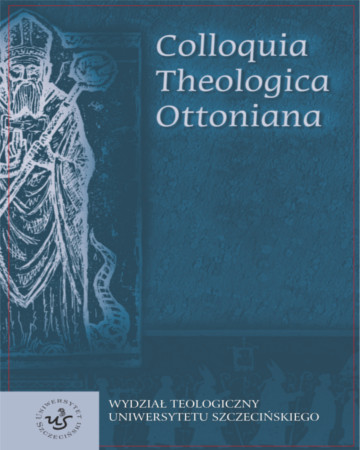Osoba szafarza eucharystii (kan. 900, 903, KPK)
Minister of the eucharist (C. 900, 903 CCL)
Author(s): Dariusz MazurkiewiczSubject(s): Christian Theology and Religion, Theology and Religion
Published by: Wydawnictwo Naukowe Uniwersytetu Szczecińskiego
Keywords: Eucharist minister licit celebration celebret
Summary/Abstract: The Church from the first moments of her existence has been recognizing in a person of a bishop and a presbyter those, only capable of presiding the Eucharistic celebration. This practice, resulting from the teaching of Christ, has found its reflection in the written law of the Church and has been repeated in both codifications of the Canon Law. Moreover, there is to notice, that this norm has not raised more serious objections throughout the history of the Church. In the face of the statement of the lawgiver, enclosed in the canon 900 § 1 of the 1983 Code of Canon Law, affirming that the minister of the Eucharist is a validly ordained priest alone, and keeping in mind that possibilities to confer the sacrament of ordination invalidly are limited, the subject matter of this article is focused on the conditions of the licit celebration of the Eucharist. Among these, there are: observing the provisions of the code norms and liturgical regulations, lack of impediments and irregularities, liberty from the Church penalties forbidding to celebrate sacraments, and finally abiding by the state of grace. Furthermore, it is to notice that an attempt of celebrating the Eucharist by a non ordained person the Church legislator coerces with the penalty latae sententiae, and the judgment of such a deed reserves to the jurisdiction of the Congregation for the Doctrine of the Faith. Being aware of the sacredness of the Eucharist and its crucial place in the life of the Church, in accordance with the secular tradition, the lawgiver in the canon 903 of the Code of Canon Law, has charged rectors of churches with the care of not permitting to celebrate the Eucharist to the impeded priests. For this purpose a rector may ask an unknown priest desiring to celebrate the Eucharist in his church, a letter of introduction from his ordinary, issued at least within the year; in case of lack of such a letter the priest may be permitted to celebrate the Eucharist also only on a base of a prudent judgment of the rector ascertaining that he is not impeded from celebrating.
Journal: Colloquia Theologica Ottoniana
- Issue Year: 2013
- Issue No: 2
- Page Range: 133-146
- Page Count: 14
- Language: Polish

